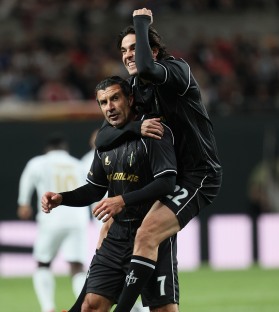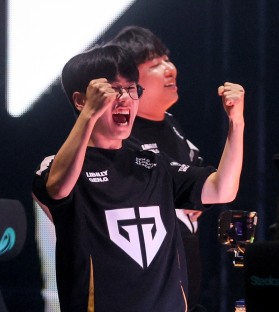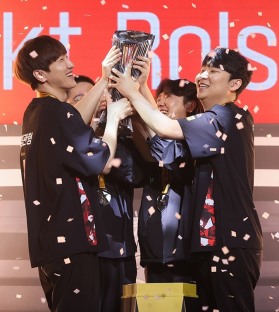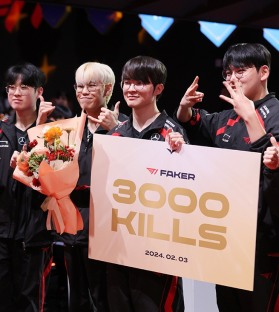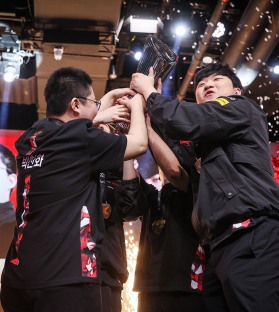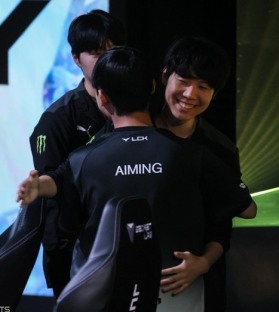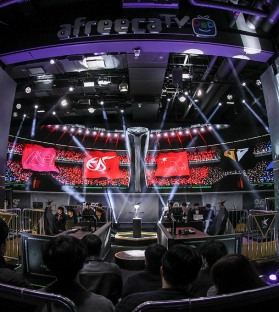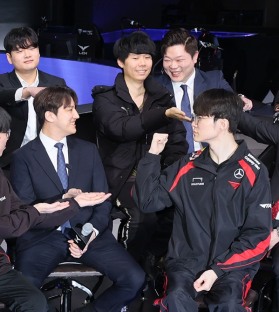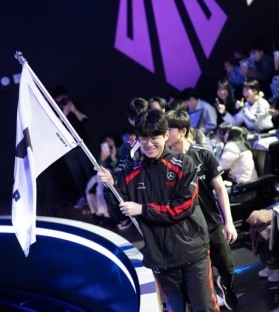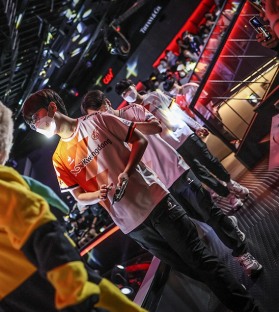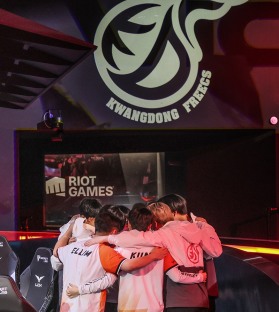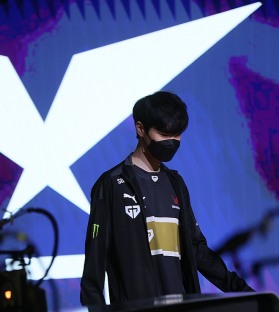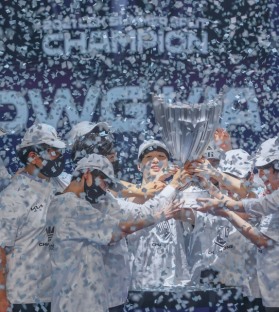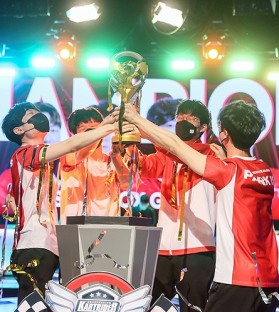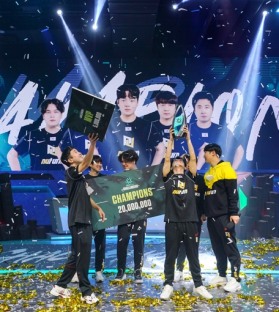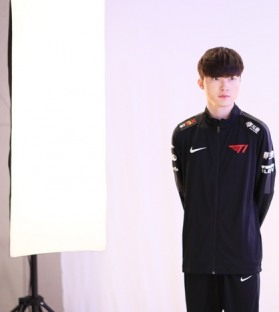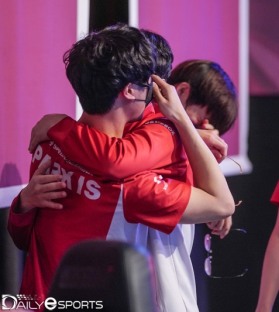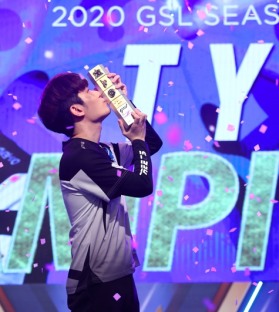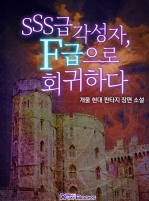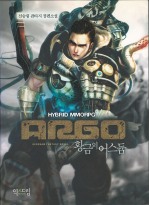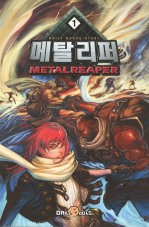![[Behind the Scenes] SKT Director Song Jong-ho on high-flying T1’s secrets and vision](https://cgeimage.commutil.kr/phpwas/restmb_allidxmake.php?pp=002&idx=3&simg=2017062317161543605_20170623171751dgame_1.jpg&nmt=27)
The first Korean team to win Worlds, SK Telecom, with the exception of 2014, won every Worlds and seized the first consecutive 2016 and 2017 Mid-Season Invitationals.
The consistently winning SK Telecom is the subject of analysis from professional League of Legends teams worldwide. Why SK Telecom is so strong, how to run a team, the secrets behind scouting; every move is under scrutiny in an effort to learn from their expertise.
◆I didn’t know I would be placed in charge of a professional gaming team
Before being appointed to the team office in 2015, Director Song Jong-ho had no experience in sports, let alone a professional gaming team. He had mainly worked in corporate sales and assumed he would be in charge of golf when he heard he was appointed to a sports team. Put aside League of Legends, he didn’t know the first thing about video games.
Q: During your two years working in operations at SK Telecom T1 you developed the best team in the world. Is there a reason you were put in charge of the team?
A: Two years ago I was assigned to manage a sports team. I never thought that I would be in charge of a gaming team. Many people around me expected that I would be responsible for golf but I was put in charge of the professional gaming team.
Q: Still, usually wouldn’t it be because you had interest in games that you were put in charge?
A: I’m from a generation that didn’t have time to become familiar with games. The PC Bang boom happened after I started working and since I was mostly in corporate sales, I was in a completely different world from games. Because I was put in charge of a field I knew nothing about, I was lost.
![[Behind the Scenes] SKT Director Song Jong-ho on high-flying T1’s secrets and vision](https://cgeimage.commutil.kr/phpwas/restmb_allidxmake.php?pp=002&idx=3&simg=2017062317161543605_20170623171751dgame_2.jpg&nmt=27)
Q: You’ve been in charge for two years, how have you adjusted?
Q: What was attractive about esports specifically?
A: Among sporting events, there are almost none where Koreans are competitive globally. There are events like archery and taekwondo that are dominated, but they are not professional fields. When the NBA was popular, by it being broadcast in Korea as well, I came to know the name Michael Jordan and the team called the Chicago Bulls despite not knowing the rules of basketball. Now with esports gaining popularity, people are getting to know the name Faker and recognizing his team SK Telecom T1. With the internet, games with professional gamers can be watched anytime, anywhere. Esports is globally competitive 21st century cultural content. It has the appeal of transcending physical limitations like time and space.
◆SK Telecom T1, different from the start
The record of the League of Legends team SK Telecom T1 is hard to tell. In 2013, the year the team was founded, they won the biggest international tournament Worlds, and in 2015 and 2016 they accomplished the first ever consecutive victories. It’s even difficult to reference their domestic League of Legends Champions Korea victories. What is the secret behind SK Telecom and its consistent results, which are the best in the world? Director Song Jong-ho explained, “It was different from the start.”
Q: Each season there is the best result. Is there a special reason?
A: It’s a question I’ve received constantly in the two years since I was appointed. The reason our team does well is like clockwork. We select excellent players and the coaching staff’s ability to bring them together is outstanding. The company gives full support so they can get good results. The three pillars of players, coaching staff, and company match well, creating a virtuous cycle.
![[Behind the Scenes] SKT Director Song Jong-ho on high-flying T1’s secrets and vision](https://cgeimage.commutil.kr/phpwas/restmb_allidxmake.php?pp=002&idx=3&simg=2017062317161543605_20170623171751_3.jpg&nmt=27)
Q: The results were good from the start.
A: We made our League of Legends team in 2013. It was a time when most used the sister team system so we also prepared two teams in a short time. Among them was the team (SKT T1 K) Lee (Faker) Sang-hyeok, Bae (Bengi) Seong-ung, etc were in, which came to prominence winning Champions and Worlds in its first year. In 2014 SKT T1 S was rebuilt with Bae (Bang) Jun-sik, Lee (Wolf) Jae-wan, Jang (Marin) Gyeong-hwan, Lee (Easyhoon) Ji-hoon, etc. With the change to the single team system in 2015 it became the best team. After discovering and scouting good players, head coach Choi Byoung-hoon and coach Kim Jeong-gyun polish them well and raise them. As the players consistently get results, the company managing the team can invest more in the team, both physically and mentally.
A: I think so too. I started as the director of the best team in the world and rather than worrying about performance, I was in a position to worry about how to support and develop them.
◆Best treatment for the best team
The professional gaming team SK Telecom T1’s motto is give the best treatment to the best. Fully support the players who give the best results so they can win even more, and challenge them so they can show more excellent performances.
Whether it be Blank, who had to hear a lot of criticism during his early slump and was stabilized through psychotherapy, or upgrading the players’ seats to the Mid-Season Invitational in Brazil to business class, it’s just the tip of the iceberg. SK Telecom T1 offers the best treatment to the players who deliver the results.
Q: Is the SK Telecom League of Legends team run differently?
A: Regardless of the sport, the work of the office is similar. The performance of the players and the coaching staff is the factor that has direct impact. The office believes its first priority is to create an environment where the players and coaching staff can focus on achieving results. Our team’s head office acts in that way. No matter how well the office runs, I think its impact on the team as a whole is less than 10%.
![[Behind the Scenes] SKT Director Song Jong-ho on high-flying T1’s secrets and vision](https://cgeimage.commutil.kr/phpwas/restmb_allidxmake.php?pp=002&idx=3&simg=2017062317161543605_20170623171751_4.jpg&nmt=27)
Q: You say that you haven’t done much but I heard that Kang “Blank” Sun-gu received psychotherapy frequently in 2016 and was stabilized. Isn’t that arranged by the office?
A: There are a few cases like that. Last year Blank had some not so good results right after joining the team so he suffered. What the team can do for to improve the players’ performance is protect their mental state. When it impacts game performance severely, the team needs to get involved to fix it. Since I knew a person who could do psychotherapy, I referred him to get psychotherapy and he improved over time.
Q: When something like that happens, the higher-ups may think little of it and the proposal may not be accomplished. What about SK Telecom?
A: When managing the team, the philosophy of the decision makers is extremely important. In the case of our team, we’ve decided to solve most of our players’ difficulties. There is the question of cost when solving a problem; it is important for the decision makers to give permission or sign off. For example, if the performance is good, the higher-ups will wonder if psychotherapy is necessary and psychotherapy cannot be given. Our team’s decision makers aren’t like that. They listen to our players’ difficulties in detail and actively help solve them, and our head office accepts the interpretation of us in the field.
Q: It seems like there’s a motto for running the team?
A: We think all the players we pick are the best. So the motto is “Give the best treatment appropriately to the best”. In order for the participating players to go comfortably to the Mid-Season Invitational in Brazil we upgraded them to business class. To go from Korea with a transfer in Frankfurt, Germany to Brazil takes at least 26 hours and you cannot maintain your competitive force if you are uncomfortable. The business class upgrade may have been expensive but we decided it was necessary to maintain the players’ condition so they could show the best performance.
Q: Is there another case?
A: As the players increase, we heard the current accommodations were cramped so we got another space the same size right next door. It’s also important to rest as hard as you train. Another one is related to streaming. This year, they have been streaming through Twitch and each player has his own style. There are players who like to show the practice room as it is as they stream and those who prefer private booths. So in the practice room we made personal streaming booths and an environment where you can focus.
? Drawing T1’s Future
Esports trends change as often as the year. While it is growing overall, the popularity of events changes and teams have ups and downs. SK Telecom may have the best League of Legends team in the world but to the point of not nurturing other teams -- that’s its limit. It maintained the world’s best StarCraft team until last year.
As SK Telecom T1 is not just a League of Legends team but a professional gaming team, I asked what short-term goals they have, and what direction the team plans to expand and develop in in the future?
Q: I think that recruiting good players is a key factor in SK Telecom’s consistent results.
A: League of Legends is a team game played with five people. Five can maintain consistent skill and maintain the number of the team, however, individuals may think differently. There are players who want to compete in a foreign team and players who want to experience the culture of a different team. Seeing all that, each season the number of people changes but while I’ve been director, many players approached us wanting to join our team.
Q: Did any players come to you directly?
A: Before the 2016 season, Lee “Duke” Ho-seong said he wanted to play for our team and sought us out. We accepted after discussing with the coaching staff and silently doing his role he made it to a Worlds victory. This year Heo “Huni” Seung-hoon came to us after finishing his life abroad and said he wanted to play in our team.
Q: How does it feel to reorganize the team?
A: I want our former players to be successful when they go to different teams. When we meet them wearing another team’s uniform we need to see them as the enemy, but that’s just talk for in-game. We even inquired for players who wanted to join foreign teams. For example, Lee “Scout” Ye-chan, though he had potential, was overshadowed by Faker and Easyhoon. We were able to use our Chinese connections to link him to Edward Gaming when he left.
Q: I’m interested in how long T1’s “long run” will last.
A: If I’m honest, with the greed of the one in charge I want to keep winning. The important thing in this process is the system. For the team to achieve the best results, the virtuous cycle I mentioned before has to be maintained. To develop once the environment is built, give good treatment to good players, keep coaching staff from getting exhausted by sustaining and developing is important. Recently, we’re building a double squad. Scrimming against other teams is not enough. By keeping two players in each position, we are planning to make an interior rivalry. In addition, regularly strengthening the coaching staff and making an environment for the head coach and coaches to pass down their knowledge.
Q: There must be areas you want to develop besides performance?
A: I want to communicate systematically with fans. We are currently communicating through social media but the number of followers is small compared to the results or the name of the team. We are observing and researching how the European team Fnatic runs their social media. Fnatic has more than 2.5 million followers on Facebook alone, I think our team has at least that much potential. We are studying what we’re lacking. There is a limit to the number of workers in the office but I think we can do it. If you the fans have an idea, please actively share your opinions and the team will respond.
Q: I’m curious about T1’s vision.
A: The short-term goal is to set a new milestone in the history of Korean professional sports. Korean professional sports are sponsored and run by large conglomerates at a deficit. The reasoning is that there are many fans who are coming and the capital lost is understandable. T1 wants to go beyond this and focus on building the ability to support itself. Instead of relying on investments from the parent company, I want to balance income and expenses.
In the mid- to long-term, we would like to create a new business model within the esports industry. I want to develop the ability to predict how the game industry will change and act preemptively to pre-occupy the space. I also want to strengthen competitiveness globally. League of Legends limits each owner to one team so it may be difficult, but other sports are different. I am also considering using Korean style training with foreign players to make the best team in certain regions. It is not solidified yet so I can’t say exactly what kind of model but I am thinking of many ways.
Written by thenam@dailyesports.com
Photo by photo@dailyesports.com
Translated by ROX_rebecca











